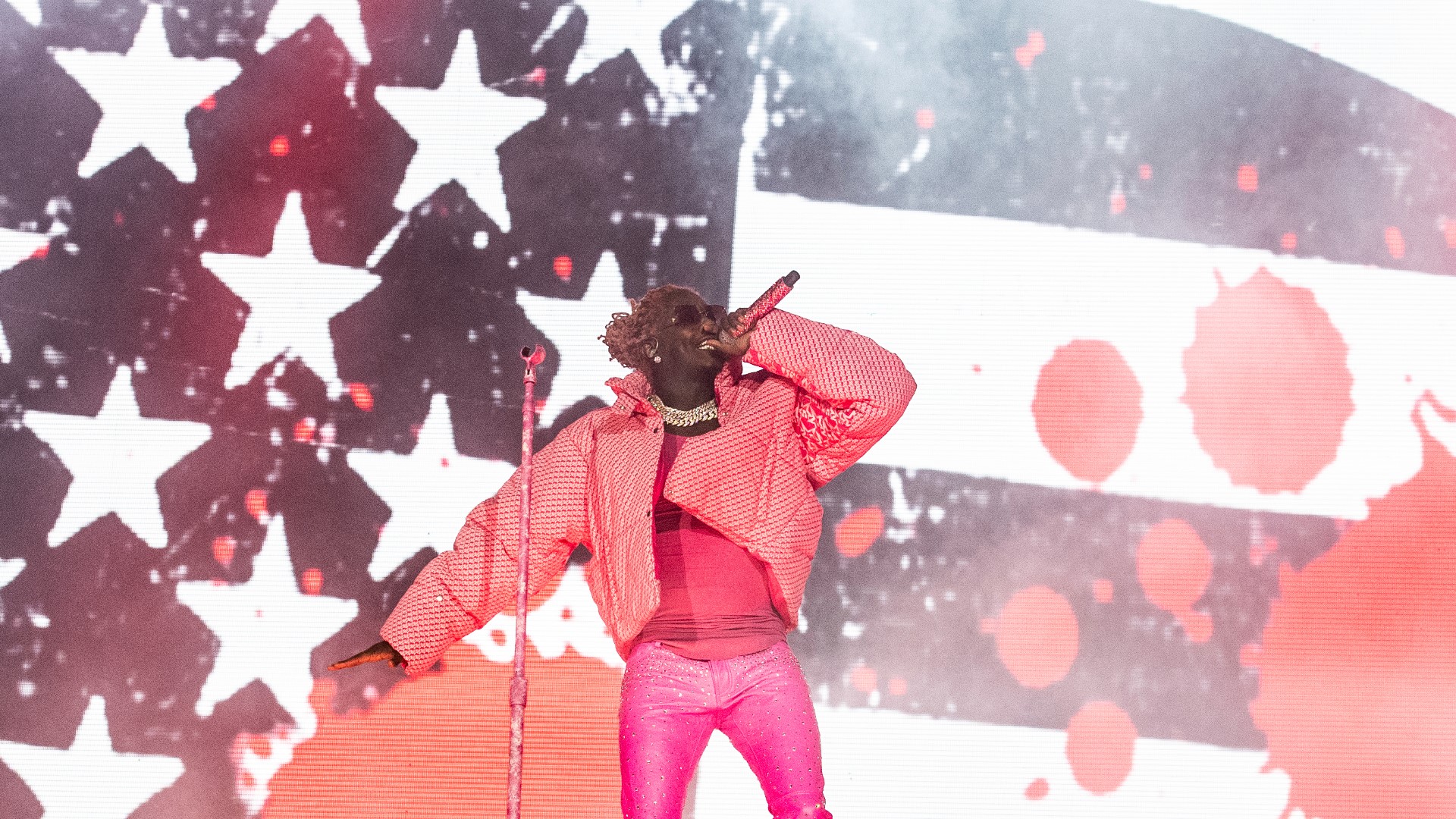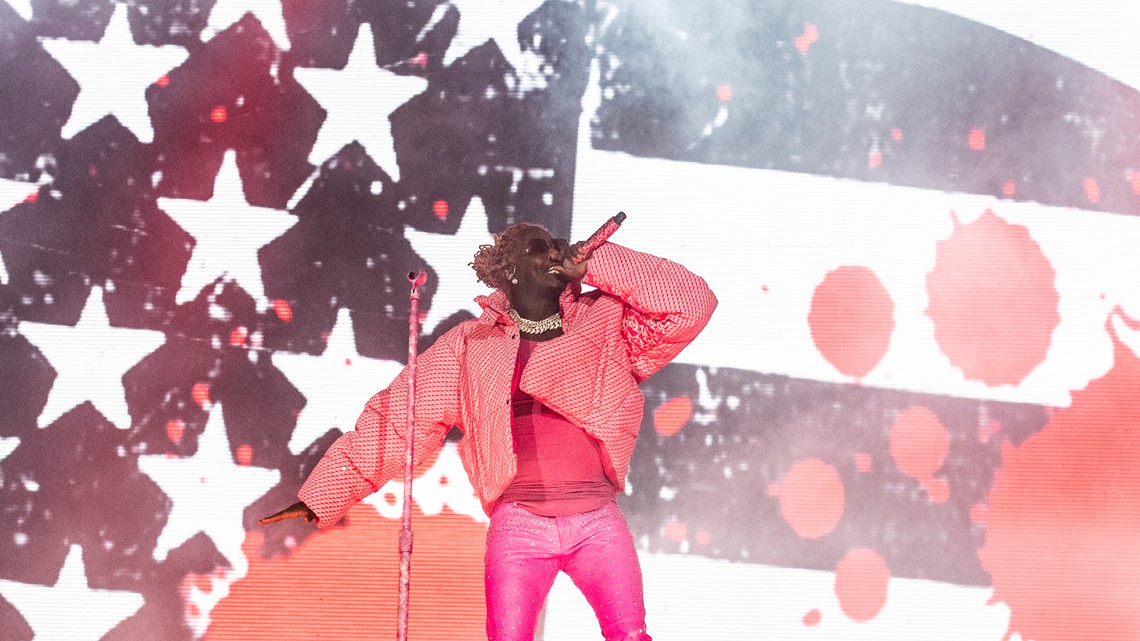JEFFERY: The full Young Thug Story | Part 4: The bigger picture
As Young Thug's case nears a trial date, 11Alive’s ‘Jeffery’ series gives an exclusive lens into what this case means – legally, artistically and culturally.

About 'Jeffery'
The 11Alive exclusive ‘Jeffery’ series unravels the high-profile grand jury indictment of Atlanta rapper Jeffery Williams, better known as Young Thug. We explore the impact of the controversial indictment, which alleges that his prominent record label, YSL, is allegedly connected to street gang activity, according to Fulton County prosecutors.
The recent events reignited a decades-long conversation about the use of rap lyrics in courtrooms across the country, the movement to protect Black art, and the precedent this case could set.
As this notorious case nears a trial date, 11Alive’s ‘Jeffery’ series gives an exclusive lens into what this case means – legally, artistically and culturally. And where do the lines blur between art and reality?
The rest of this series will premiere soon exclusively on 11Alive+, available on Roku and Amazon Fire TV. Text "plus" to 404-885-7600 to download 11Alive+. For more info, visit: https://www.11alive.com/watch.
Part 4 The Bigger Picture
During interviews for 11Alive’s "Jeffery" series, two common themes came up in several conversations: the bigger picture and the impact this case will have on hip-hop culture.
Hip-hop music’s influence on America’s culture and on our country’s youth sparked many discussions over the decades, with debates on the positive and negative correlations that could potentially exist. The hip-hop cultural movement reaches a global audience and is considered one of the most influential music genres in the world.
The correlations also shed light on the Black communities where the art is produced, and how it is an interpretation of the challenges that Black men and women face in society.
11Alive’s Neima Abdulahi and Atlanta native and rapper T.I. spoke about this topic in-depth.
“When it’s Black men in America, is it often guilty until found innocent?” Abdulahi asked the hip-hop veteran.
“Absolutely. Black men have always been the criminals or the villains that society could hang their head on,” he said. “Anytime there's a crime being committed, if someone says a Black person did it, they stop looking for any other options.”
Attorney Kenneth Montgomery also chimed in on the societal issues that impact marginalized communities.
“Unfortunately, Black men in our communities, in the poor sections of our communities have been socially, politically and economically and academically alienated,” he said.
Montgomery is a social justice advocate and defense attorney who represents clients, from hip-hop artists to everyday citizens. He said he often reflects on the impact of cases like Young Thug’s.
“We're not seeing the bigger picture of culture: Is that our culture, or is our culture being sold to us?” he questioned. “As a community, we're missing an opportunity to actually evolve our culture and change something systematically.”
As the countdown for Young Thug’s trial continues, in an 11Alive interview, music executive Kevin Liles emphasized the takeaway he’s already noticed.
“What does this [trial] say about the state of the culture?” 11Alive asked Liles.
“I don't think there's anything about the state of culture,” Liles replied. “What does this say about the state of our judicial system? Our country constantly reminds us every day how you are Black, you have a permanent tattoo; therefore, you will be treated differently in this country.”


Liles brought up the unrest in Black America over the years. Specifically, he referenced the Los Angeles Riots in 1992. A time of violence and unrest after four LAPD officers were acquitted after a brutal beating of an unarmed African-American motorist named Rodney King.
King became a national name after the caught-on-camera incident was broadcast on television. It became viral long before social media.
The verdict sparked riots, which erupted throughout the city.
“We thought we saw the worst of it with Rodney King. But now we know we didn't,” Liles explained. “We thought we saw the worst of it when they were putting a fire on CDs and stuff back in the day. But now they're locking us up because of the very lyrics that 90% of the world loves today.”
There’s a domino effect of the multi-layered societal issues Black youth and economically disadvantaged communities face, Montgomery told 11Alive.
“Nobody's tackling the thing that causes all of this stuff, which is lack of education, lack of meaningful education, poverty, value systems,” he said. “Nobody wants to touch that stuff.”
Kenny Burns, music industry veteran and hip-hop culture expert, said the focus should be on the next generations who are making their way into the music industry.
“You gotta protect these kids,” he said. “They have no one.”
He reflected on his own journey as a Black man in America and the harsh roadblocks he overcame.
“I was a part of the problem myself. I grew up single parent home, hood, locked up at 18, faced all types of consequences because of my actions,” Burns said.
His advice to other young artists who come up from similar backgrounds: seek mentorship, guidance and resources.
“This is a system not built to help you,” he said. “You have to do research.”
